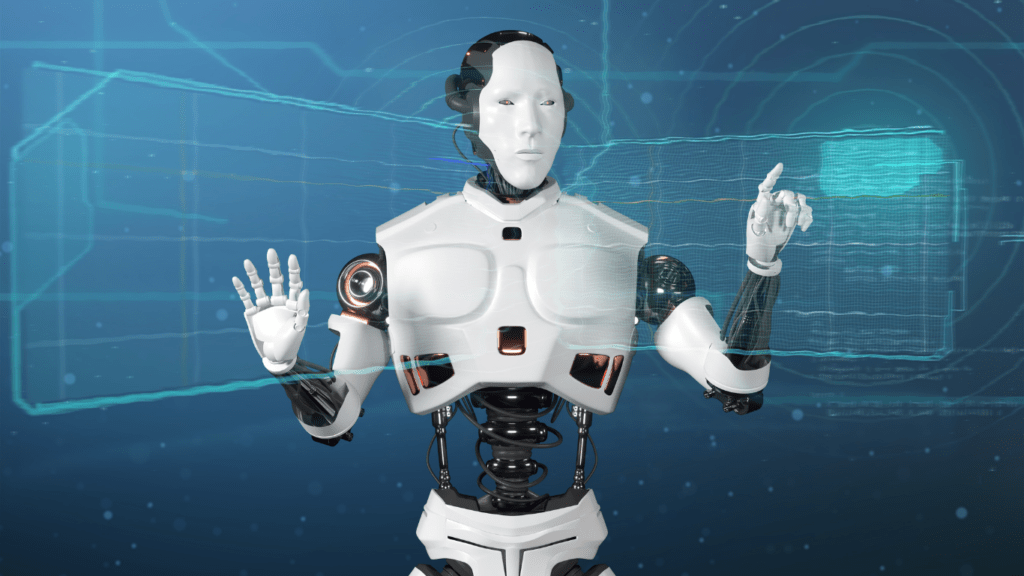As a passionate gamer, I’ve witnessed firsthand the transformative power of Artificial Intelligence (AI) in the gaming industry. AI is not just a buzzword anymore; it’s a game-changer that’s reshaping the very foundation of how we play and experience games.
From enhancing in-game environments to creating dynamic non-player characters (NPCs) with human-like behavior, AI is revolutionizing the future of gaming in ways we never thought possible. With AI algorithms becoming more sophisticated and capable, game developers are leveraging this technology to deliver more immersive and personalized gaming experiences.
Whether it’s optimizing gameplay mechanics, improving enemy AI, or generating vast open worlds with intricate details, AI is pushing the boundaries of what’s achievable in the gaming landscape. The fusion of AI and gaming is not just a trend; it’s a glimpse into the exciting and limitless possibilities that lie ahead for gamers worldwide.
The Impact of AI in Gaming
Exploring the Impact of AI in Gaming
As a gaming enthusiast, I’m excited to delve into the profound impact of Artificial Intelligence (AI) on the gaming industry. AI has revolutionized the way games are developed, played, and experienced, elevating the overall gaming landscape to new heights. Let’s explore how AI is reshaping the future of gaming.
Enhancing Player Experiences
AI technologies have paved the way for more immersive and engaging player experiences. Whether it’s through adaptive enemy behavior, realistic environments, or personalized gameplay, AI algorithms continuously analyze player actions to provide tailored challenges and interactions.
This dynamic adaptability keeps players engaged and ensures a unique gaming experience with every session.
Creating Intricate Game Mechanics
AI’s influence extends beyond surface-level enhancements, delving into the intricate mechanics that underpin modern games. From procedural generation and predictive analytics to intelligent decision-making systems, AI algorithms power complex game systems that react in real-time to player inputs.
This level of sophistication not only enriches gameplay but also opens doors to innovative game design possibilities.
Shaping Dynamic Non-Player Characters (NPCs)
One of the standout features of AI in gaming is its ability to create lifelike and dynamic non-player characters (NPCs). Gone are the days of predictable NPC behavior; AI-driven characters can now exhibit emotions, learn from interactions, and evolve throughout the game.
This evolution adds depth to storytelling, making NPCs feel more human-like and enhancing the overall narrative immersion for players.
Looking Ahead to AI’s Future in Gaming
The strides made by AI in the gaming industry are not just fleeting trends but a glimpse into the future of gaming innovation. As AI technologies continue to advance, we can expect even more sophisticated game experiences, intelligent virtual worlds, and unprecedented levels of player immersion.
The possibilities are truly limitless, and the evolving synergy between AI and gaming is set to redefine the boundaries of interactive entertainment.
AI-driven Game Development
AI revolutionizes game development by integrating advanced technology to enhance player experiences and gameplay mechanics. In this section, I’ll delve into how AI is shaping the development of virtual characters and dynamic game environments.
Virtual Characters Development
In AI-driven game development, virtual characters play a pivotal role in creating immersive gaming experiences. These characters are brought to life through sophisticated algorithms that enable them to exhibit emotions, learn from player interactions, and adapt their behavior dynamically.
By leveraging AI, developers can design NPCs that respond intelligently to in-game situations, providing players with compelling and realistic interactions. The evolution of virtual characters powered by AI has not only enhanced the storytelling aspect of games but also elevated the level of emotional engagement players experience within the gaming world. Complementing these innovations, AI music is being used to generate dynamic soundtracks that adapt to player decisions and emotional tone, further deepening immersion and transforming how players connect with the narrative.
Dynamic Game Environments
AI-powered dynamic game environments are changing the way players interact with virtual worlds. Through AI algorithms, game environments can evolve in real-time based on player actions and decisions, offering a unique and personalized gameplay experience.
These dynamic environments adapt to the player’s choices, creating a sense of unpredictability and challenge that keeps players engaged. By utilizing AI for environment development, game designers can craft ever-changing landscapes that react to the player’s presence, introducing new obstacles, challenges, and opportunities for exploration. The dynamic nature of game environments driven by AI ensures that each gaming session feels fresh and exhilarating, pushing the boundaries of traditional game design.
AI-enhanced Gaming Experience
In AI-enhanced gaming experiences, virtual characters are brought to life with remarkable depth and realism. They can exhibit a wide range of emotions, learn from player interactions, and adapt their behavior accordingly.
This level of sophistication not only enhances storytelling but also fosters emotional engagement, creating a truly immersive gameplay environment. The dynamic game environments powered by AI are a game-changer in the industry.
These environments evolve in real-time based on player actions, offering a personalized and unique gaming experience with each session. The adaptability of these environments introduces an element of unpredictability, keeping players on their toes and delivering fresh challenges consistently.
As AI continues to advance, the future of gaming looks incredibly promising. With ongoing advancements in AI technology, we can expect even more sophisticated gaming experiences that push the boundaries of interactive entertainment further. The era of AI-driven gaming is here to stay, shaping the future of the gaming industry in ways we could have only dreamed of before.
Ethics and Challenges in AI-infused Games
Exploring the ethical considerations and challenges surrounding AI integration in games is pivotal to understanding the evolving landscape of gaming technology. AI’s profound impact on gameplay and player experiences also raises crucial questions about ethics and the potential hurdles that developers may encounter.
- Ethical Dilemmas in AI-infused Games: Balancing realism with ethical boundaries when creating AI-controlled characters that mimic human emotions and behaviors. Addressing concerns about data privacy and player profiling when AI algorithms analyze and adapt to individual gaming patterns.
- Challenges of AI Integration in Gaming: Overcoming biases in AI decision-making processes that may affect game balance or player experiences. Managing the complexity of adapting AI systems to different gaming genres and mechanics.
As AI continues to shape the future of gaming, addressing these ethical dilemmas and challenges will be key to fostering responsible and sustainable AI integration in game development. By navigating these complex considerations, developers can harness the full potential of AI while upholding ethical standards and ensuring a safe and enriching gaming experience for all players.




